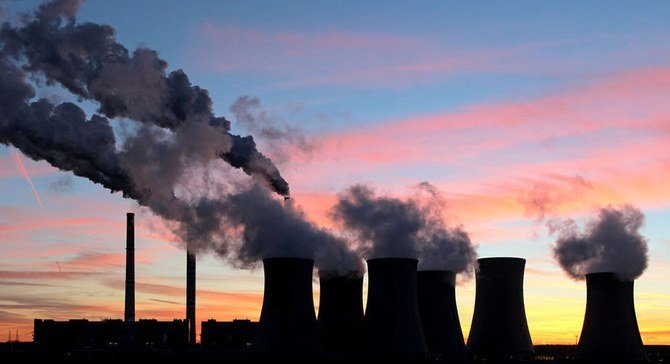
- ARAB NEWS
- 03 Jul 2025

Michael Glackin
A report from Bank of America has warned reaching net zero will cost the global economy $5 trillion annually for the next 30 years.
On the eve of the UN’s COP26 environmental conference in Scotland this month, where countries who signed the 2015 Paris Agreement to reduce carbon emissions will review their progress and outline policies to achieve net zero by 2050, the report offers a stark reminder of the cost of transitioning to greener energy.
However, the report also warned that failing to address climate change could lead to the loss of 3 percent of global gross domestic product annually this decade, amounting to around $69 trillion by the end of this century.
A key priority at COP26 is for governments to agree on specific cash-backed policies that will accelerate the transition toward net zero, including a commitment to phase out the use of coal, sharply reduce deforestation, speed up the transition to electric vehicles and green heating systems, and implement fiscal measures to encourage increased investment in renewable energy.
In addition, the summit, which is taking place in Scotland’s former industrial heartland of Glasgow, will also attempt to get western governments to make good the $20 billion a year shortfall in helping emerging nations transition to greener energy.
Developed nations had agreed to provide $100 billion per year to emerging nations. Not only have they fallen short on that commitment, but the UN wants agreement in Glasgow to increase that funding further.
The UN Environment Programme estimates the cost of transition in emerging countries will reach $140-300 billion by 2030, and $280-500 billion by 2050. San Francisco based think tank, the Climate Policy Initiative, estimates Africa on its own may require up to $3 trillion by the end of this decade.
Against this backdrop, Bank of America estimates the total cost of transitioning will be $150 trillion, at least four times the amount that global COVID-19 stimulus packages are forecast to cost governments this decade.
The report states financing the trillions of dollars of investment needed for net zero will require “significant changes in capital allocation.”
As Arab News reported last week, the World Resources Institute said G20 countries still account for 75 percent of global greenhouse gas emissions. Meanwhile, a report by Moody’s Investors Service revealed financial institutions in the G20 were carrying almost $22 trillion of exposure to carbon-intensive sectors.
However, Bank of America said the use of labelled bonds and loans to address environmental issues is expanding rapidly.
It is forecasting more than $1 trillion in labeled bond issuance this year, with $900 billion in green, social and sustainability bonds and a further $100 billion in sustainability-linked bonds.
The report adds that labeled bonds already account for more than 20 percent of European high grade and European high yield issuance for corporates this year, driven by environmental, social and governance (ESG) concerns and EU regulations, more than twice the rate in 2020.
However, while the report is bullish about the ability of Western governments to pay for greening the planet, the report notes that while around 50 countries, along with the EU — which between them account for almost 75 percent of CO2 emissions — have committed to reaching net zero, only 10 countries have so far enshrined that commitment in legislation.
The report adds while a number of the countries have pledged to long-term targets, centered on 2050 or the end of the century, they have failed to make 2030 commitments in line with the Paris Agreement.
The good news? Well, Bank of America’s cost estimate is considerably lower than an earlier forecast, published in the summer, by BloombergNEF’s closely watched New Energy Outlook, which put the figure at $173 trillion, of $5.8 trillion annually.
Progress of sorts as the world heads to Glasgow.